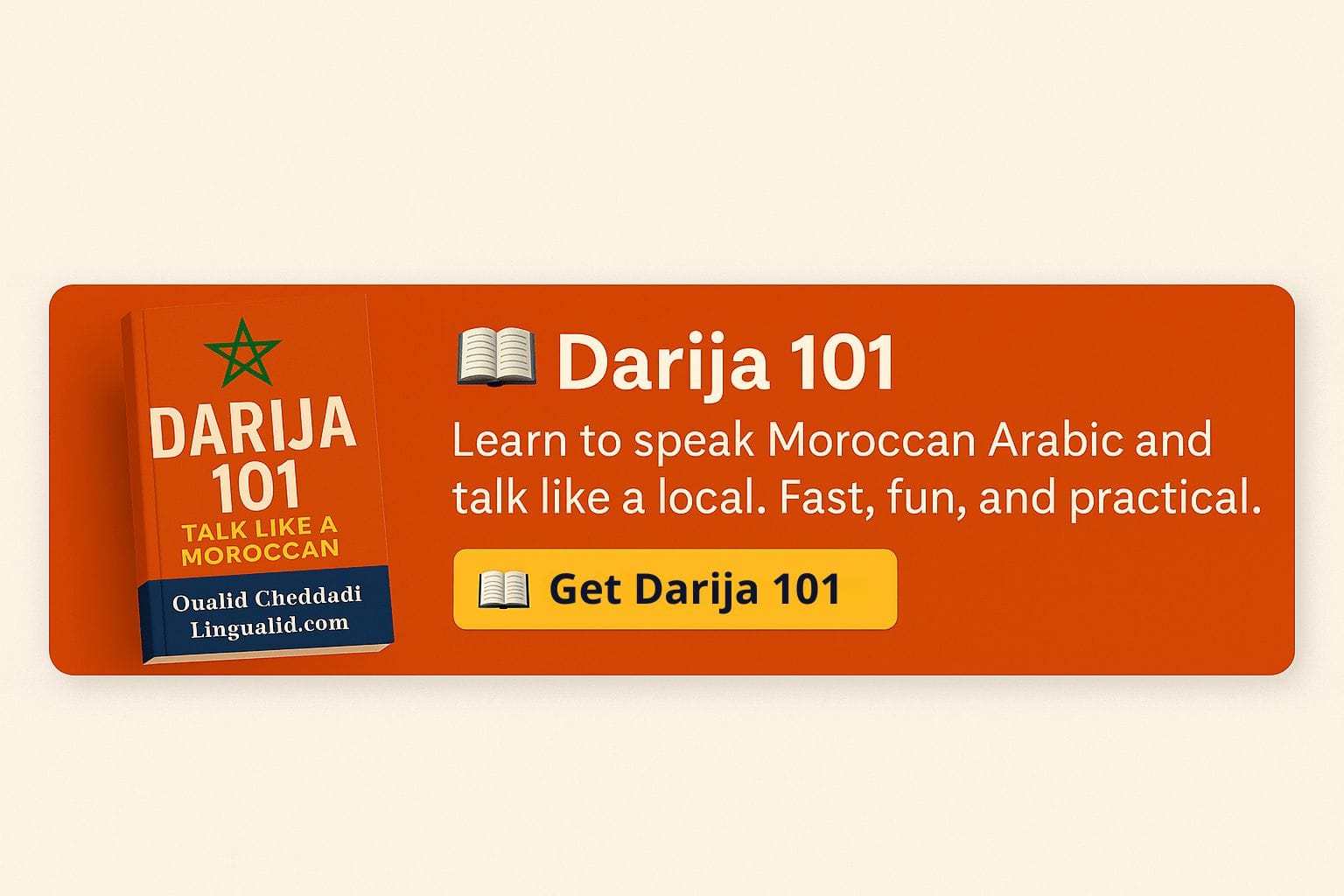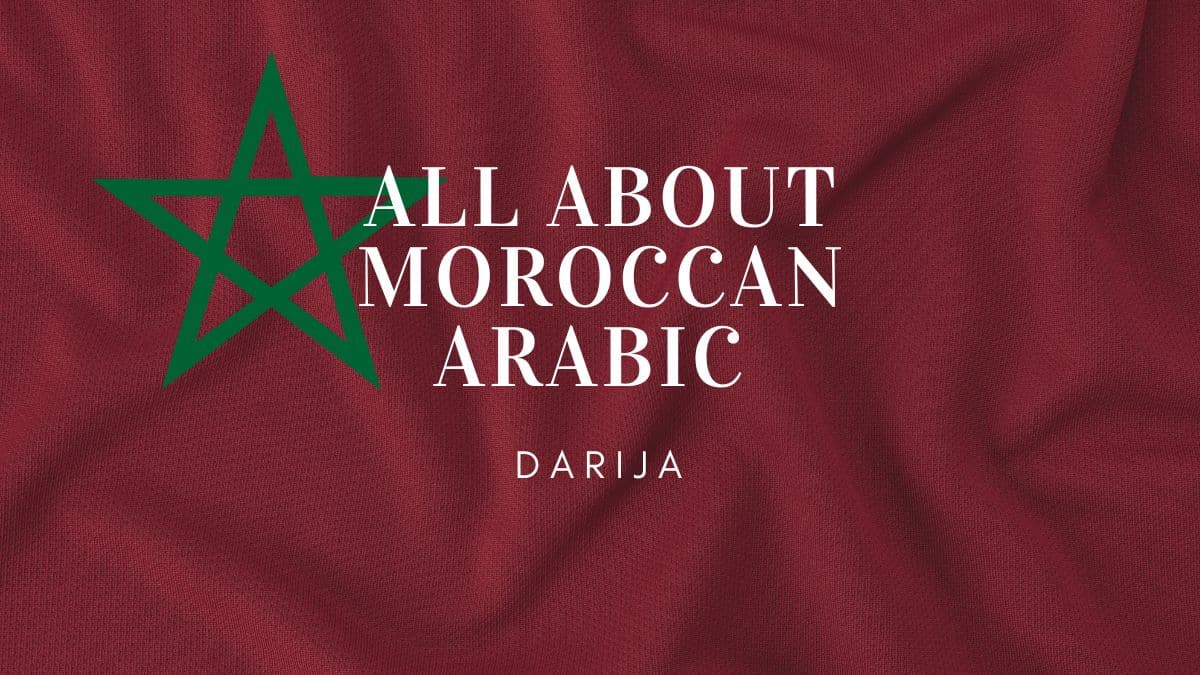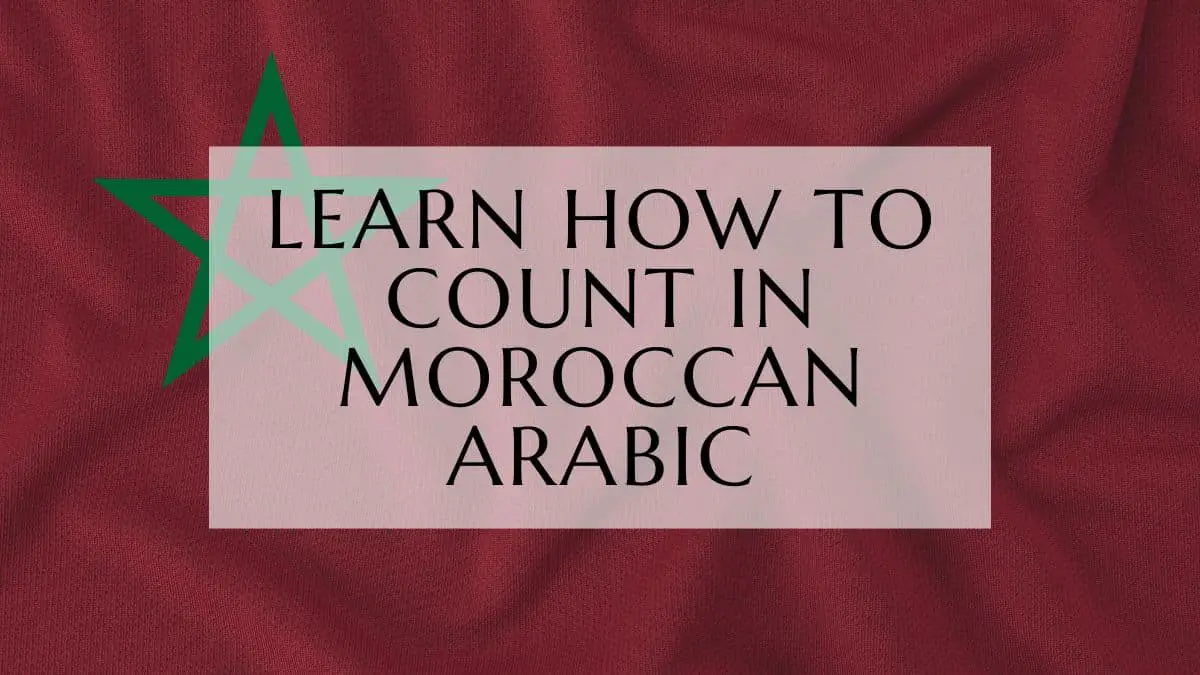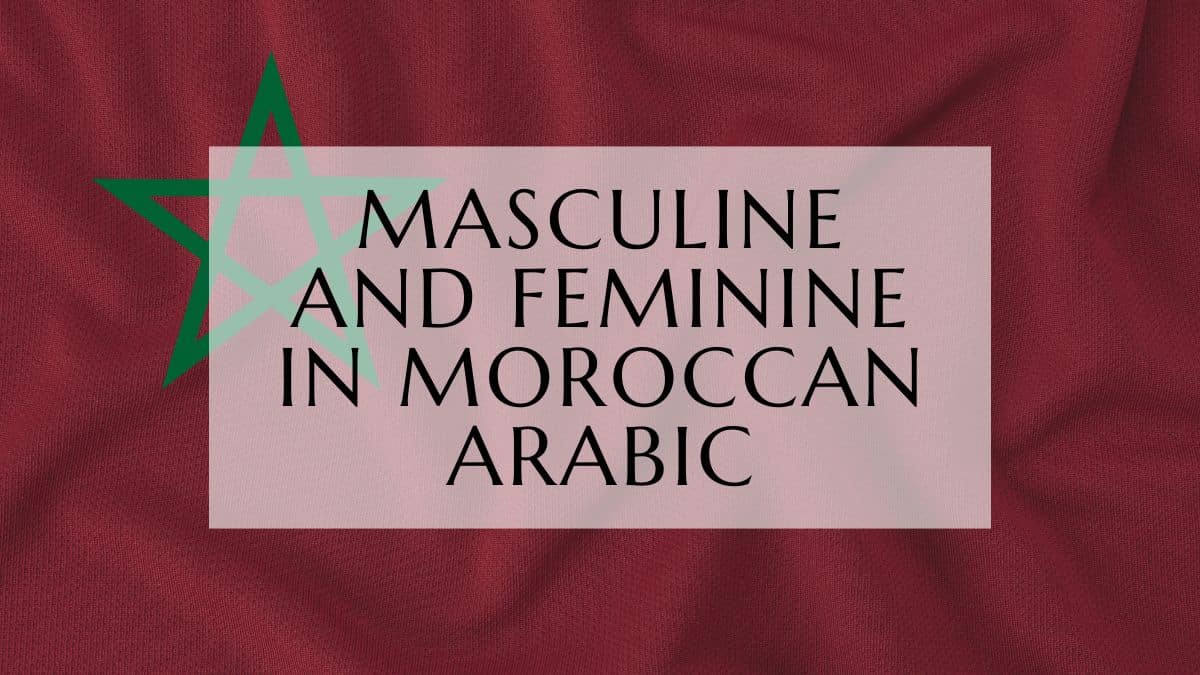Moroccan Arabic Personal Pronouns is one of the first basic lessons every Darija learner has to learn to talk about or describe anything, adding to that verbs, nouns, and adjectives to give complete sentences. So in this post, we will talk about the eight personal pronouns in Moroccan Arabic, how to use these pronouns with verbs, nouns, and adjectives, and then talk about the difference between Moroccan Arabic and Modern Standard Arabic MSA regarding this topic.
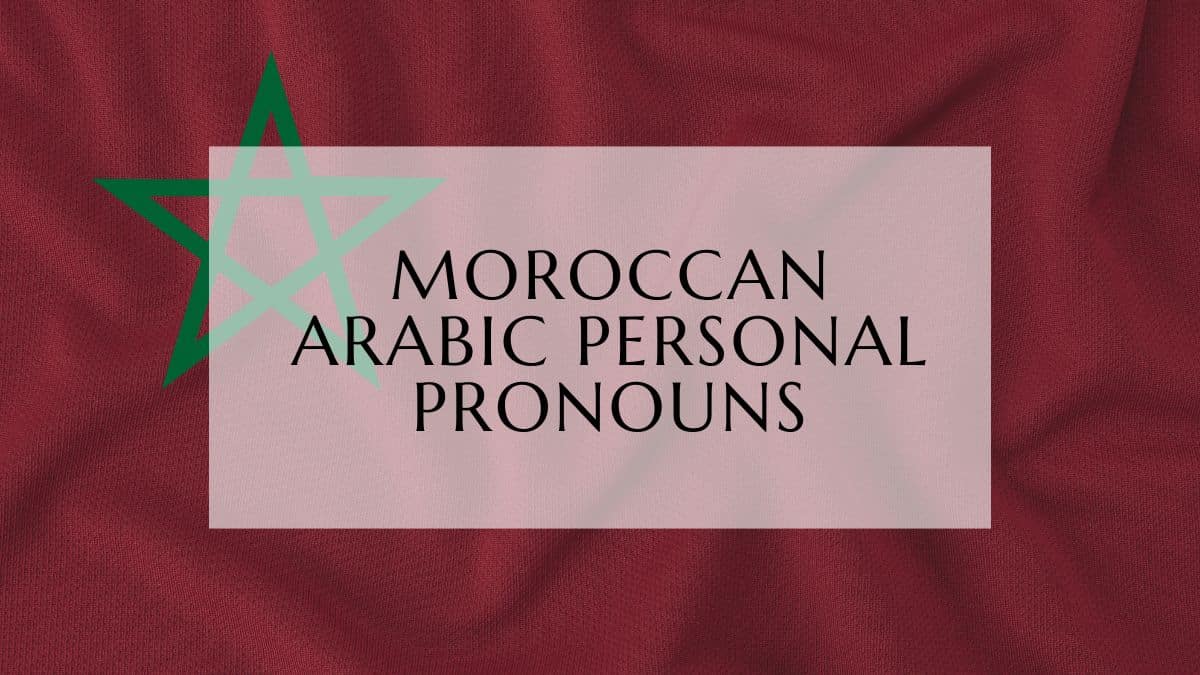
Moroccan Arabic Personal Pronouns
| English | Transcribed Moroccan Arabic | Using Arabic Alphabet |
| I/ me | Ana | أنا |
| You (feminine singular) | Nti / Ntiya | نتي / نتيا |
| You (masculine singular) | Nta / Ntaya | نتا / نتايا |
| He | Howa | هو |
| She | Hia/Hiya | هي |
| We/Us | 7na | حنا |
| You (plural, both men and women) | Ntuma | نتوما |
| They (both men and women) | Huma | هوما |
Using Darija Personal Pronouns With Nouns And Adjectives
Unlike English, you don’t need to use the verb “to be”, just the personal pronoun and the noun or adjective you would like to use, examples:
Ana Oualid , I am Oualid أنا وليد
Nta Mohami , you’re a lawyer نتا محامي
Nti dkiya, you’re smart
Howa mrid, he is sick هو مريض
Hiya zwina , she’s beautiful هي زوينة
Huma ferhanin , they are happy هوما فرحانين
Note: you can practice what you’ve learned here, and learn how to pronounce each of the words in our Memrise course here, don’t know how to use the platform or sign up? we’ve got you covered in this easy-to-follow tutorial here.
Using Darija Personal Pronouns With Verbs
In Darija, personal pronouns can be omitted while used with verbs as you can identify the subject from the conjugated verb, for example, the verb ktb (to write): if I say ktbt, it’s clear that the personal pronoun here is “I” , while ktbtu is referring to “they” (we will talk about the conjugation in other posts), but you can use the pronoun if you want to add the emphasis or just don’t know the conjugation well so at least you say the pronoun right.
- Ana ktbt , I wrote أنا كتبت
- Huma ktbu , they wrote هوما كتبو
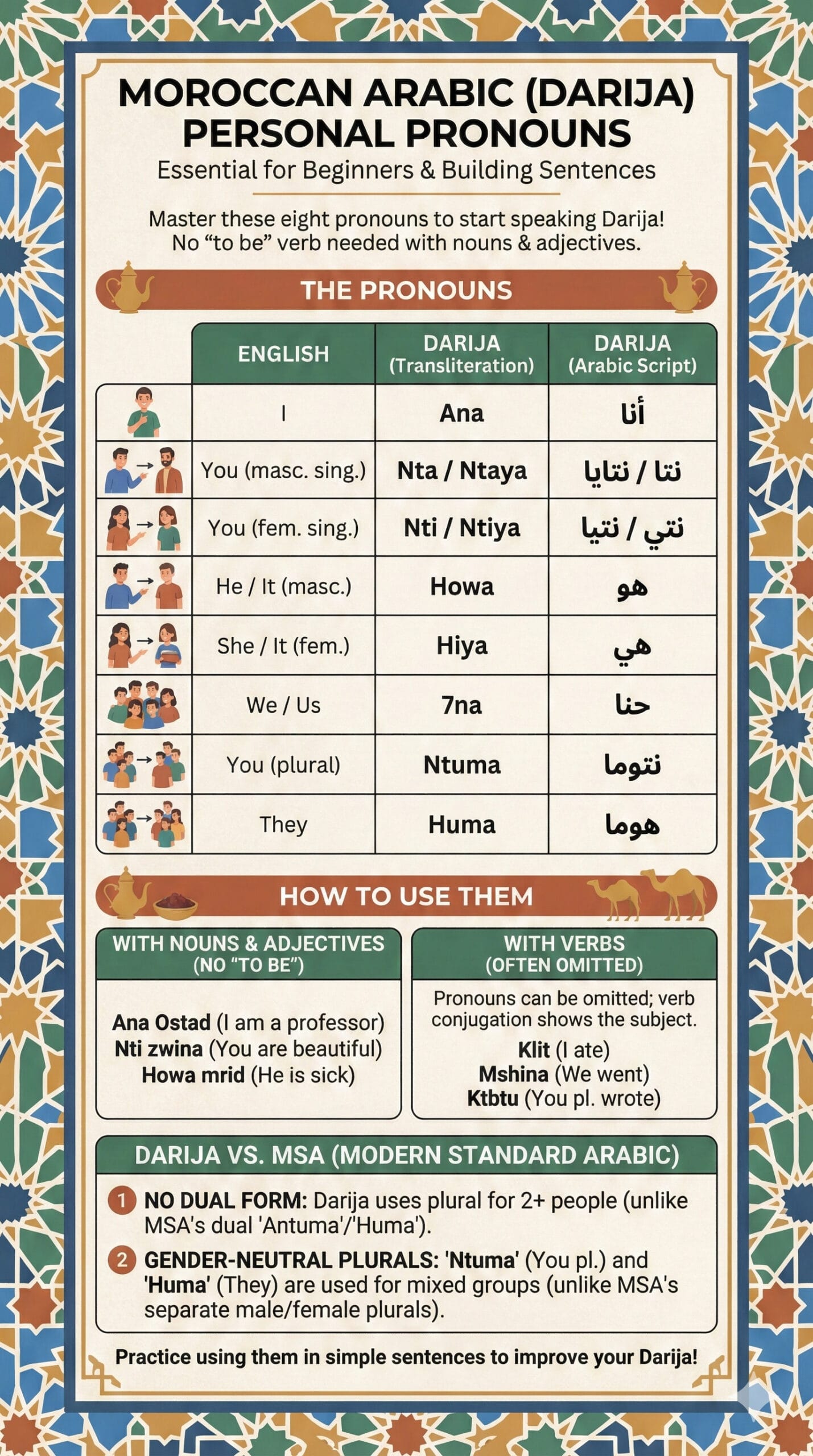
Personal Pronouns In Moroccan Arabic Vs Modern Standard Arabic MSA
If you know Modern Standard Arabic and want to know the difference in personal pronouns or you’re just curious, this is for you (and they’re two)
First: if you’re addressing two people or more, in Moroccan Arabic it’s Ntuma, while in Standard Arabic there is Antuma/أنتما for two, and Antum/antunna أنتم/أنتن for three or more, which leads us to the second difference:
Second: the plural pronouns you and they are neutral in Darija, unlike in Moden Standard Arabic: you antum/ antunna أنتم/أنتن and they hum/hunna هم/هن
Moroccan Arabic Personal Pronoun Review
Quiz
Instructions: Answer the following questions in 2-3 sentences.
- How are personal pronouns used differently with nouns and adjectives in Darija compared to English?
- Provide an example of a Darija sentence using a personal pronoun with an adjective.
- Can personal pronouns be omitted when used with verbs in Darija? Explain why or why not.
- Give an example of how the verb “ktb” (to write) changes when conjugated for different subjects in Darija.
- What does the blog post identify as the two main differences in personal pronoun usage between Moroccan Arabic and Modern Standard Arabic?
- Translate the following sentence into English: “Hiya zwina.”
- How does the blog post suggest practicing the pronunciation of Moroccan Arabic personal pronouns?
- What is the author’s purpose in highlighting the differences between Darija and MSA regarding personal pronouns?
- How does understanding personal pronoun usage contribute to fluency in a language like Darija?
- Based on the information provided, what can you infer about the importance of verb conjugation in Darija?
Answer Key
- In Darija, you do not need to use the verb “to be” with nouns and adjectives as you do in English. Simply using the personal pronoun with the desired noun or adjective suffices.
- “Nta qbi7” – You are ugly (masculine singular).
- Yes, personal pronouns can be omitted when the verb conjugation clearly indicates the subject. However, using the pronoun can add emphasis or compensate for unfamiliarity with conjugations.
- “Ana ktbt” – I wrote. “Huma ktbu” – They wrote.
- The blog post identifies two main differences: (1) Darija uses “Ntuma” for addressing two or more people, while MSA has distinct forms for two and three or more. (2) Darija’s plural “you” and “they” are gender-neutral, unlike MSA’s gendered forms.
- She is beautiful.
- The blog post suggests using their Memrise course, which provides audio pronunciations of the words.
- The author aims to aid learners familiar with MSA by highlighting potential areas of confusion and contrast with Darija.
- Understanding personal pronoun usage is fundamental for constructing grammatically correct sentences and understanding who is performing actions or being described.
- Verb conjugation in Darija seems crucial as it can convey the subject of a sentence, even without explicitly using a pronoun. This implies a greater reliance on verb forms for conveying grammatical information.
Happy learning!
Oualid Cheddadi is the founder of Lingualid, a platform that inspires independent language learners worldwide, regardless of the language they are learning. The name “Lingualid” is derived from the Portuguese word for “language,” “língua,” and the last three letters of Oualid’s name, “Lid.”

